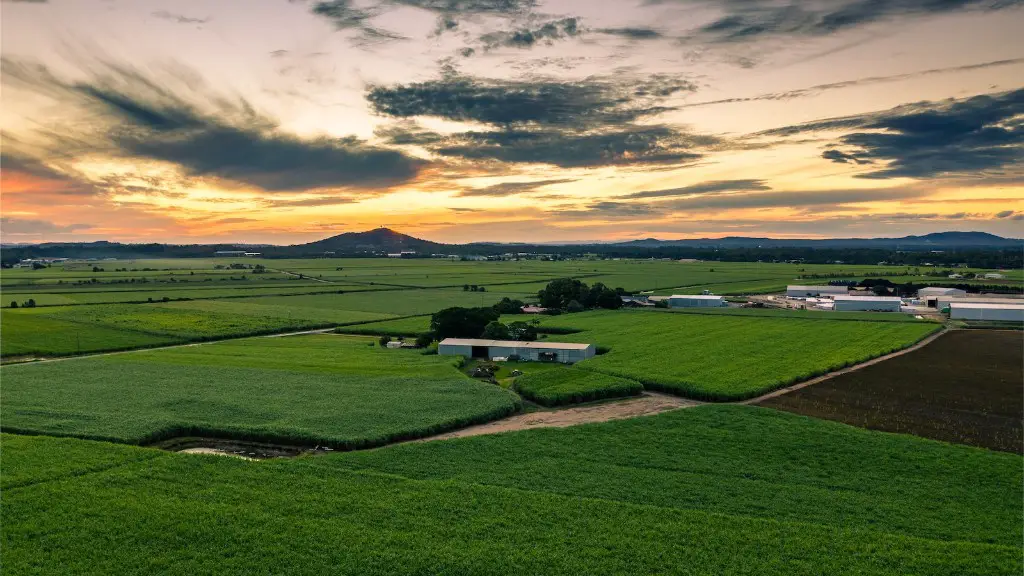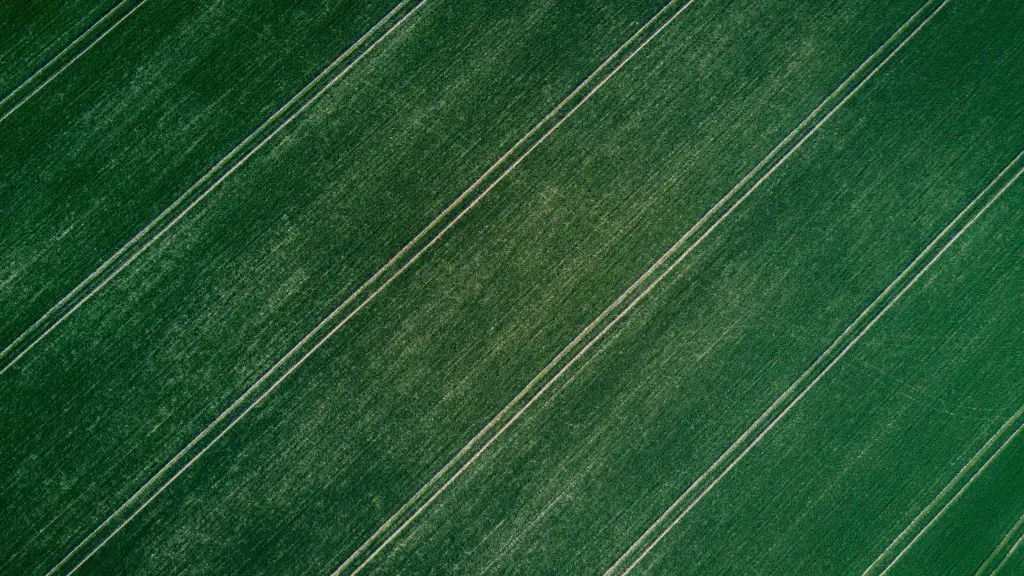Supply and demand for food dictate that agriculture will continue to be a mainstay in the United States and around the world. Unfortunately, this also means that agriculture has negative impacts on the environment. Pesticides and herbicides pollute soil and water, while monoculture depletes soil nutrients. Fertilizer runoff creates dead zones in the ocean, and livestock farming releases methane gas into the atmosphere. These problems will likely only worsen as the population continues to grow. While some farmers are adopting more sustainable practices, it is clear that more needs to be done to mitigate the negative impacts of agriculture on the environment.
Agriculture can have a negative impact on the environment due to a number of factors, such as the overuse of pesticides and herbicides, the conversion of natural habitats into agricultural land, and the release of greenhouse gases from livestock.
What are 5 negative impacts of agriculture?
Agriculture is one of the main sources of environmental pollution. Five environmental effects of agriculture are soil fertility loss, eutrophication of water bodies, deforestation, climate change and pesticide pollution.
Soil fertility loss is caused by the overuse of chemicals and fertilizers in agriculture. These chemicals can pollute the soil and water, and they can also kill beneficial microorganisms that help to keep the soil healthy.
Eutrophication of water bodies is another environmental effect of agriculture. This occurs when nutrients from fertilizers and other agricultural products runoff into waterways, causing an increase in algae growth. This can lead to the depletion of oxygen in the water, harming fish and other aquatic life.
Deforestation is another environmental effect of agriculture. This occurs when trees are cleared to make way for farmland. Deforestation can lead to soil erosion, loss of biodiversity, and climate change.
Climate change is another environmental effect of agriculture. Agriculture contributes to climate change by releasing greenhouse gases into the atmosphere. Agriculture also contributes to deforestation, which further exacerbates climate change.
Pesticide pollution is another environmental effect of agriculture. Pesticides can pollute the air, water, and soil. They can also kill beneficial insects, birds,
There are a number of environmental factors that can impact farmers’ profits and productivity in any given growing season. Soil quality, water quality, climate, and terrain can all play a role in how successful a farmer is in producing a crop. If any of these factors are not ideal, it can lead to lower yields and less profit for the farmer.
How did the Agricultural Revolution negatively impact the environment
The Agricultural Revolution was a turning point in human history, when we began to domesticated plants and animals and started to live in settled communities. This transition had a profound impact on the environment, as it transformed forests and previously undisturbed land into farmland. This destruction of habitats led to a decrease in biodiversity, as many species were lost. Additionally, the Agricultural Revolution released large amounts of carbon dioxide into the atmosphere, contributing to climate change.
The industrial agriculture system is not sustainable. It consumes fossil fuel, water, and topsoil at unsustainable rates and contributes to numerous forms of environmental degradation, including air and water pollution, soil depletion, diminishing biodiversity, and fish die-offs.
What are 5 negative impacts on the environment?
One of the most significant ways humans impact the physical environment is through climate change. Climate change is a result of human activity, like burning fossil fuels and deforestation. These activities release greenhouse gases into the atmosphere, trapping heat and causing the Earth’s temperature to rise. This can lead to extreme weather conditions, like more frequent and more intense storms, droughts, and floods. Climate change also causes sea levels to rise, which can lead to coastal flooding and displacement of people who live in coastal areas. Soil erosion, poor air quality, and undrinkable water are also consequences of human activity. Deforestation, for example, can lead to soil erosion because trees anchor the soil. And burning fossil fuels releases harmful pollutants into the air, which can cause respiratory problems and other health issues.
There are many reasons why you should relocate to Canada today! The country is modern and industrialized, with a literate population and good infrastructure. There are also plenty of social amenities, modern storage and processing facilities, and access to land and fertilizers. Plus, Canada is a stable country with a low risk of natural disasters.
What are the three main problems for agriculture?
Despite the technological advances, the agriculture sector in the country faces various problems. The sector is heavily dependent on the rainfall, which is often erratic. This leads to waterlogging in wetland areas, salinity in arid and semi-arid areas, and acidity in high rainfall areas. Pests (like weeds, diseases, and insects) are also a major problem. As a result, the sector’s productivity is often low, which leads to unemployment.
It is important that we set the table to address the triple challenge of feeding a growing population, providing a livelihood for farmers, and protecting the environment. We must tackle these challenges together in order to make sustainable progress. By working together, we can find solutions that will help us achieve our goal of a sustainable future.
Why is agriculture the biggest mistake
Farming helps to bring deep class divisions among humanity as it allows for the accumulation of food and other resources. Those who farm are able to store up food, creating a surplus that can be used to trade for other goods and services. This surplus also allows them to weather lean times better than those who do not farm. As a result, those who farm are often seen as being more prosperous and successful than those who do not, leading to a deep divide between the two groups.
There is a clear need for more research on the health outcomes of agricultural workers. Current research suggests that farmers have an increased prevalence of many acute and chronic health conditions, including cardiovascular and respiratory disease, arthritis, skin cancer, hearing loss, and amputations. Other health outcomes, such as stress and adverse reproductive outcomes, have been little studied in the agricultural workplace. This lack of research is a major problem, as it leaves agricultural workers at risk for a range of health problems. In order to protect the health of agricultural workers, more research is urgently needed.
What are the disadvantages of modern agriculture?
Disadvantages of using modern farming methods are:
-Modern farming methods have overused the natural resource base
-Increased use of fertilizers has led to the loss of soil fertility
-The use of groundwater for tube well irrigation has led to water depletion
-Modern farming methods require a great deal of capital
While there are many issues that our environment faces, three major ones affect the majority of them: global warming and climate change; water pollution and ocean acidification; and loss of biodiversity.
Global warming and climate change are perhaps the most well-known of the three, and with good reason. The effects of climate change are already being felt by people and ecosystems all over the world, and the situation is only expected to get worse. Water pollution and ocean acidification are also major problems, as they can lead to the loss of marine life and the contamination of drinking water supplies. Finally, loss of biodiversity is a huge issue, as it can lead to the extinction of plant and animal species and the loss of critical ecosystem functions.
What are negative environmental factors
There are a number of environmental issues that can have a negative impact on human health. These include air pollution, water pollution, climate change, and exposure to disease-causing microbes. Additionally, poor access to health care and poor infrastructure can also impede human health and wellness.
There are a number of pressing environmental concerns that need to be addressed in order to protect our planet. Biodiversity loss, water pollution and climate change are some of the most pressing issues that need to be dealt with. Each of these issues has a devastating impact on our environment and our ability to live sustainably on this planet.
It is imperative that we take action to address these environmental concerns. We need to raise awareness of the issues, and we need to put pressure on governments and businesses to change their policies and practices. We also need to change our own behaviour, and consume less and waste less.
By taking action on these pressing environmental concerns, we can make a difference and help to protect our planet for future generations.
What are the 5 biggest environmental problems caused by food and agriculture?
The main environmental problems that arise from food production are water use and water pollution, greenhouse gas emissions, and depletion of natural resources. Water is needed to grow food, and when it is polluted it can have a negative impact on the environment and human health. Greenhouse gas emissions from food production can contribute to climate change, and depletion of natural resources can lead to habitat loss and other environmental problems.
Agriculture is the leading source of pollution in many countries. Pesticides, fertilizers, and other toxic farm chemicals can poison fresh water, marine ecosystems, air, and soil. They also can remain in the environment for generations. In some cases, these chemicals can cause cancer and other serious health problems.
Warp Up
There are many negative impacts of agriculture on the environment. One is the loss of habitat for wild animals as farmland expands. This can lead to a decline in biodiversity. Agriculture can also lead to soil erosion and water pollution. The use of pesticides and herbicides can contaminate soil and water, and the overuse of fertilizers can lead to nutrient pollution of waterways. Another negative impact is the greenhouse gases that are emitted from agricultural activities. These activities can contribute to climate change.
The negative impact of agriculture on the environment are many and varied. They include soil erosion, water pollution, and the loss of biodiversity. Agriculture also contributes to climate change, both through the emissions of greenhouse gases and through the conversion of land from forests to farmland. These impacts have serious consequences for the planet and its inhabitants.





